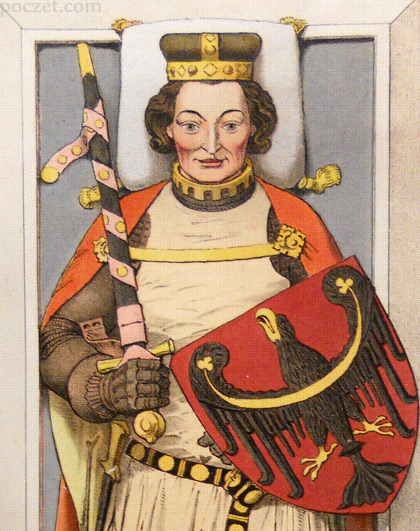After the funeral, Father Bernie
Murphy sat in his usual place beside the Bishop’s armchair, which was filled to
the brim with the Bishop himself, wagging a stubby finger at him. “I’m counting on your discretion, Father.”
“Of course, Your Excellency, but a few more details might
help.”
The Most Reverend Francis X. Brody directed a sharp
glance at his youthful assistant, rearranged his bulk in his complaining
La-Z-Boy and reached for his rye and water.
Father Murphy remained silent and relaxed.
Finally, his boss continued. “Police were up there and interviewed the
housekeeper, spoke to some parishioners, examined the ladder, etcetera. Death due to misadventure, they concluded. Apparently he fell repainting the
rectory. Imagine – at his age.”
“He had a reputation for being frugal, Excellency. I’ve heard that Father Lipinski even donated
his monthly stipend to his parish.”
Father Murphy made a show of surveying the Bishop’s luxurious
surroundings: leather furniture and Persian carpets.
“Humph,” from the old man.
The young priest studied his Bishop, waiting in vain for
a clue to his special interest in Father Lipinski’s death. “I’ll leave first
thing in the morning, Excellency.”
The Bishop extended his empty glass, motioning for a
refill. “Just snoop around, Bernie. Tidy up. Make sure there are no … loose
ends.”
Now off the main highway, Bernie
slowed through Bridgetown, population 330.
He passed Hemingway’s general store where two women loaded their pick-up
with supplies; one of them waved. In the
next block he located St. Mary’s Church; an old guy in coveralls weeding a rose
bed stopped and stared at Bernie as he parked at the rectory. He didn’t wave.
Bernie remained in his car, pondering the outwardly
simple life of Father Stan Lipinski, still puzzled about the Bishop’s
intentions in having him snoop around.
To his knowledge, the rumours about Stan and his housekeeper had been
cleared up, so it couldn’t be that.
Then he checked his image in the rearview. Maybe too slick for the country, so he
ruffled his hair. He debated removing
his roman collar, decided to leave it in place.
On the porch, he rang the bell, wondering, was there a loose end here?
Bernie took stock of the attractive woman who opened the
door, releasing the aroma of freshly-baked bread, all the more tantalizing
because he’d skipped breakfast.
Mid-forties, he guessed, wearing tight jeans and a man’s white shirt,
sleeves rolled to the elbows and a yellow apron imprinted with Mickey Mouse
ears. Her strong hands were white with flour, some of which streaked across her
brow. She wiped one hand on her apron,
extending it to Bernie with a tight smile.
“Been expecting you, Father. I’m
Mary Rogers. Come in.”
She led Bernie into a reception room: stiff-backed
chairs, threadbare carpet, a crucifix on the wall and a portrait of St. Theresa
of the Child Jesus clutching a bouquet of red roses – the only color in this monk’s
cell. “Make yourself comfortable,” she
said. “Tea’s just made.”
Bernie watched her bustle away and raised an eyebrow at
the undulation of her hips. For his
benefit?
Back in a clatter of teacups, she set a tray on the chair
between them and offered a plate of chocolate chip cookies.
He gave
her a Father Murphy smile, as sincere as he could make it. “The Bishop’s concerned for you, Mrs.
Rogers. And your son, of course. He wants you to know that a new pastor will
be appointed soon. And your job here is
secure.”
“That’s very kind of the Bishop. Tell him we’re grateful.” Her shoulders relaxing now. “And call me Mary.”
Bernie set his cup on the tray and leaned forward in his
confidential pose. “Tell me about Father
Stan.”
Mary stood abruptly, strode to the window and gazed in
silence toward the church.
Eventually, as though in a
trance, she spoke of a young husband who’d deserted her before their son was
born. And Father Lipinski’s many
kindnesses over the years: her job, her small apartment in the rectory
basement, his concern for her boy. “Stan
was a wonderful man, Father. My son and
I will miss him.”
She resumed her seat and poured more tea. Her words were those of a grieving woman, but
to Bernie there was something else behind them. It was only two days after Father Lipinski’s
burial and she didn’t have that red-eyed, listless demeanor you often saw in the
grief-stricken. He also noted the faint yellow
marks along her neck, nearly hidden by her shoulder-length hair. And now he wondered if the rumors about Stan
and his housekeeper hadn’t been cleared up after all.
“Did he do all the maintenance himself? Here in the rectory?”
“Oh, indeed he did, Father. He was quite a handy man.”
Sergeant Lantz met Bernie at
the snack bar in the Bridgetown Inn overlooking the river along the main
highway. “It’s not part of my regular
patrol, Father, but I live here in town so I caught the call. I’m a member of St. Mary’s parish, too. Poor Father Stan … best priest we ever
had. Helluva shame, that accident. Told him he was getting too old for that kind
of work.” He slurped his coffee. “And he was great with the young people. Had a real touch.”
Bernie had taken him through the details, the emergency
call from the housekeeper, examination of the body and the ladder, the doctor’s
report. “Damn tragedy, Father. A misstep on a ladder and a good man is taken
from us.”
Next, Bernie drove the fourteen miles to the Upton
Regional Hospital where he met Dr. Chalmers the medical director, who’d signed
the death certificate. “I’m also the
coroner for this region,” Chalmers said.
“I attended the scene myself. Cause
of death was obviously the broken neck he suffered in his fall.” He tucked away the business-end of his
stethoscope escaping from his coat pocket and leaned back in his chair. “Such a tragedy. Father Lipinski was popular, his death leaves
a big hole in this community.”
Bernie left the doctor’s office and took the elevator to
the hospital’s top floor where he tapped on the door labelled “Director
General”.
Sister Norbert was the superior of the Religious Hospitallers
of Saint Joseph and she ran this hospital.
“It’s so good to see my favourite nephew again, Bernie.” She linked her arm through his, pecked him
on the cheek and led him to a comfy couch.
Sister fussed over him, brought him a cup of coffee and settled down
beside him.
Bernie patted her arm.
“Shame about Father Stan’s accident.”
Sister Norbert drew back a little. “Yes.”
She paused. “I hope he made peace
with his Maker.”
Bernie held her gaze, appraising this long-time associate
of the Bishop. “I need a little favour.”
She squinted at him.
“That Bishop’s got you up to some of his mischief, hasn’t he? Now don’t try to bamboozle me, Bernie. We’ve been friends too long for that.”
He grinned.
“What do you really
want?”
It took some convincing but down in the medical records
room, Sister Norbert slipped him the files he requested. He read them cover to cover and thanked
her.
As he drove the fourteen miles back to the rectory, the
image of Father Stan Lipinski tumbling from the ladder kept him company. And he thought: maybe it was time to remove
the velvet gloves.
They sat at the kitchen table
and waited while the cabbage rolls she’d offered for lunch warmed up.
“I read
the medical files at the hospital,” Bernie said.
Mary Rogers frowned. “I thought those records were private.”
Bernie flipped his hand back and forth, then leaned
forward. “How’s your son doing?”
She glared at him. “Leave him out of this.”
“About the ladder, Mary.
Someone might’ve … tampered with it.”
She checked the timer on the stove, fingers tapping on
the table.
“Someone with a strong motive to stop Father Stan’s
activities.”
No response, her fingers still in motion.
“And when that someone’s son was – ”
“Enough!” Mary’s eyes
flashed like gun-fire, but she waited until her breathing slowed. “I’ve no idea what you’re talking about.”
It was late evening when Bernie
parked at the chancery office and made his way to the Bishop’s residence. “Sorry to be so late,” he told the old man.
The Bishop waved away his apology and made a
help-yourself motion toward the bar. When
Bernie had seated himself, the Bishop eyed his young assistant. “Tell me.”
“You might’ve given me more of his history, Excellency.”
“Better you had an open mind.”
Bernie paused. “Mary
Rogers won’t talk – it’s not in her interest."
A nod from the Bishop.
“But Sister Norbert is suspicious.”
Bishop Brody
massaged his sagging jowls. “Nothing
worse than a nosy nun,” he said. A long
sigh leaked out of him. “Can we control
this? I’d be in your debt.”
A fox’s smile twitched at the corners of Bernie’s mouth. “Of course, Excellency.”
Chris Laing is a native of Hamilton,
Ontario. His first novel, A Private Man, was published by Seraphim Editions in 2012 and was a
Finalist for the Arthur Ellis Award, Best First Crime Novel, for the Bloody Words
Bony Blithe Award and for a Hamilton Arts Council Literary Award. A Deadly Venture is the second
novel in the Max Dexter Mystery Series and will be released by Seraphim
Editions in Fall, 2014.
His short stories have appeared in Alfred Hitchcock's Mystery Magazine and Hammered Out as well as a number of
online journals. (See here, here, and here.) His collection of short stories about growing up
in Hamilton during World War II, West End Kid: Tales from the Forties,
was self-published in 2013 and is available as an e-book here. Chris now lives
in Kingston, Ontario, with his wife, artist Michèle LaRose.
See Brian Henry's schedule here, including
writing workshops and creative writing courses in Barrie, Brampton, Bolton,
Burlington, Caledon, Cambridge, Georgetown, Guelph, Hamilton, Kingston, London,
Midland, Mississauga, Newmarket, Niagara on the Lake, Orillia, Oakville,
Ottawa, Peterborough, St. Catharines, Stouffville, Sudbury, Toronto, Halton,
Kitchener-Waterloo, Muskoka, Peel, Simcoe, York, the GTA, Ontario and beyond.






No comments:
Post a Comment
Note: Only a member of this blog may post a comment.